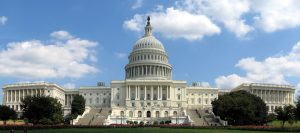What exactly is sequestration and why are people so up-in-arms about it? You have likely heard this term numerous times over the past few months, with increasing urgency in recent weeks. Just look at the Google search traffic for the word “sequestration” to see the current popularity of this subject.

Source: visitingdc.com
Sequestration, sometimes called “The Sequester”, is a process that automatically cuts the federal budget across most departments and agencies. Congress included the threat of sequestration in the Budget Control Act of 2011 as a way to encourage compromise on deficit reduction efforts. They couldn’t agree on a budget by the deadline set in the Budget Control Act, so mandatory budget cuts were scheduled to go into effect on January 2, 2013. Congress stopped the cuts from happening by passing the American Taxpayer Relief Act on January 2. This law pushed the budget cuts back until March 1, 2013.
According to the The Budget and Economic Outlook: Fiscal Years 2013 to 2033 by the Congressional Budget Office (CBO), the cuts for 2013 will total $85 billion. The CBO estimates that in 2013, funds for defense spending (other than spending for military personnel) will be cut by about 8%, and non-defense spending subject to automatic reductions will be cut by between 5% and 6%.
Do I need to take action?
The government will not be shutting down but it is important to understand that Government services may get squeezed. This may be difficult for some but not as painful as allowing the deficit to continue rising. In fact, most individuals are probably not going to notice an immediate effect.
As it relates to your investments, having a plan and staying disciplined to it will serve you well. Make sure any decisions you make are truly in line with your long-term financial goals. At Sensenig Capital, we often say that the market is an anticipator and that all available information is already incorporated into the underlying securities prices. The fact is that no one can accurately predict future political, social, or economic events so remember that staying broadly diversified is a prudent way to become a successful long-term investor.



